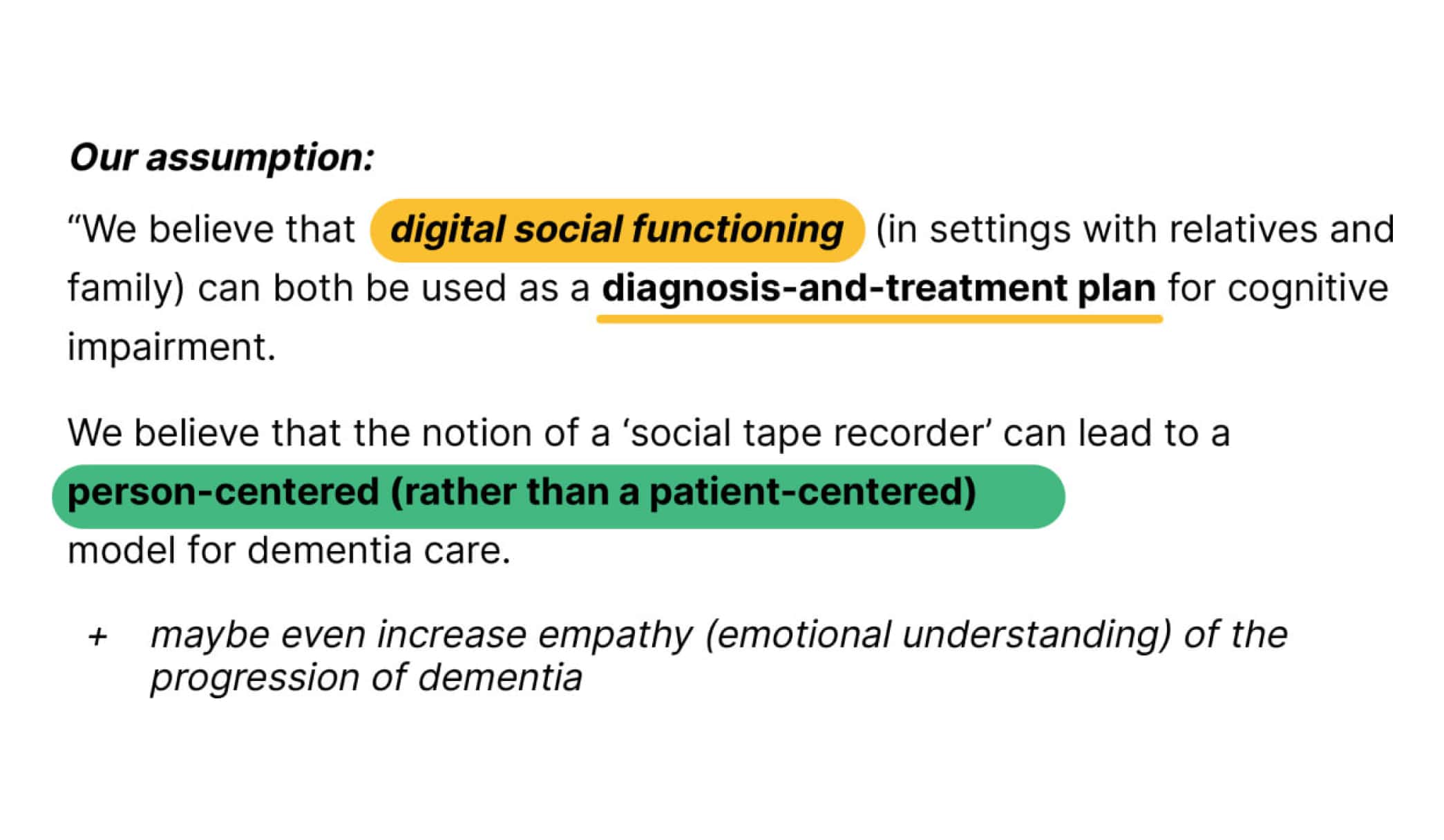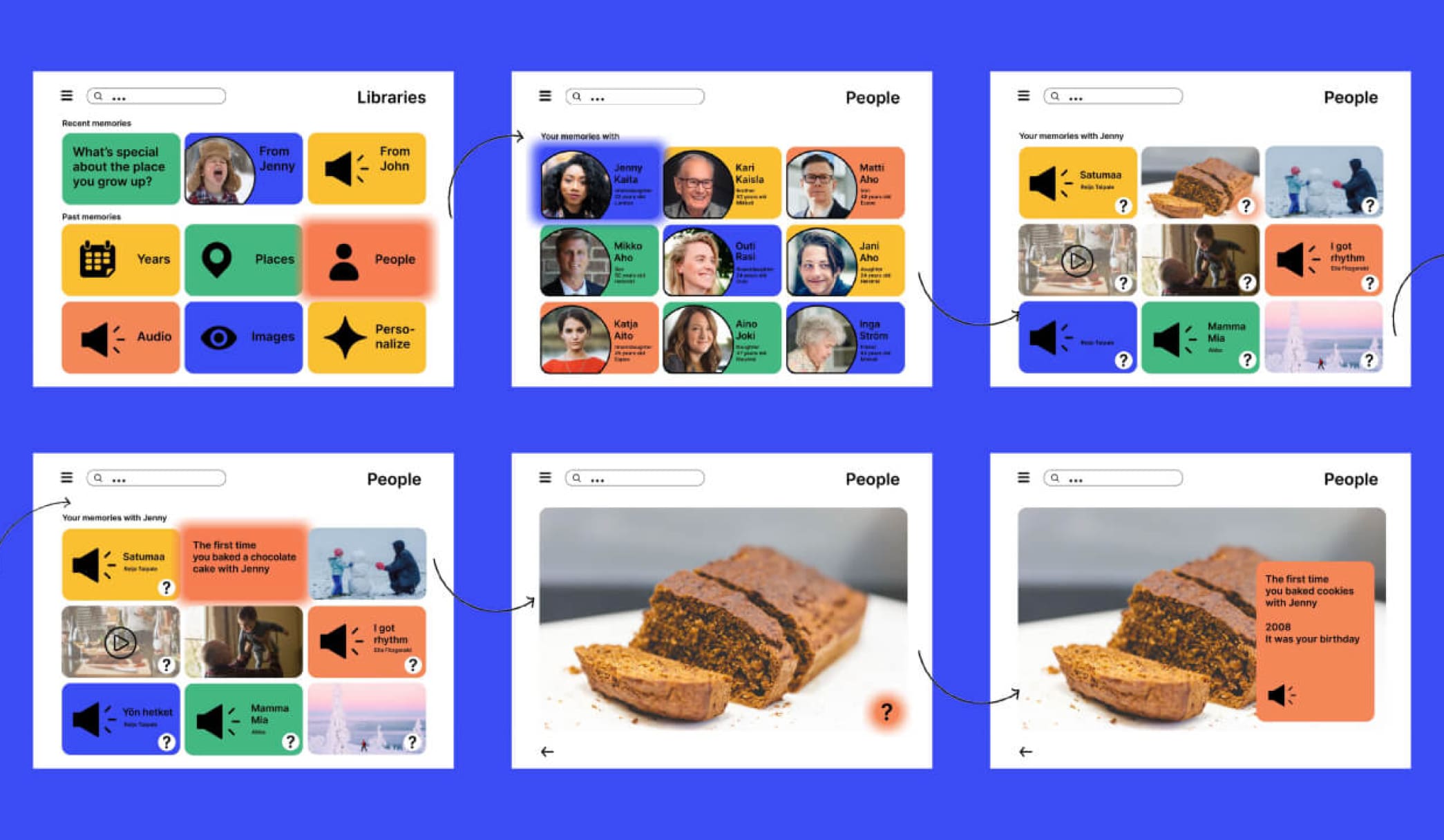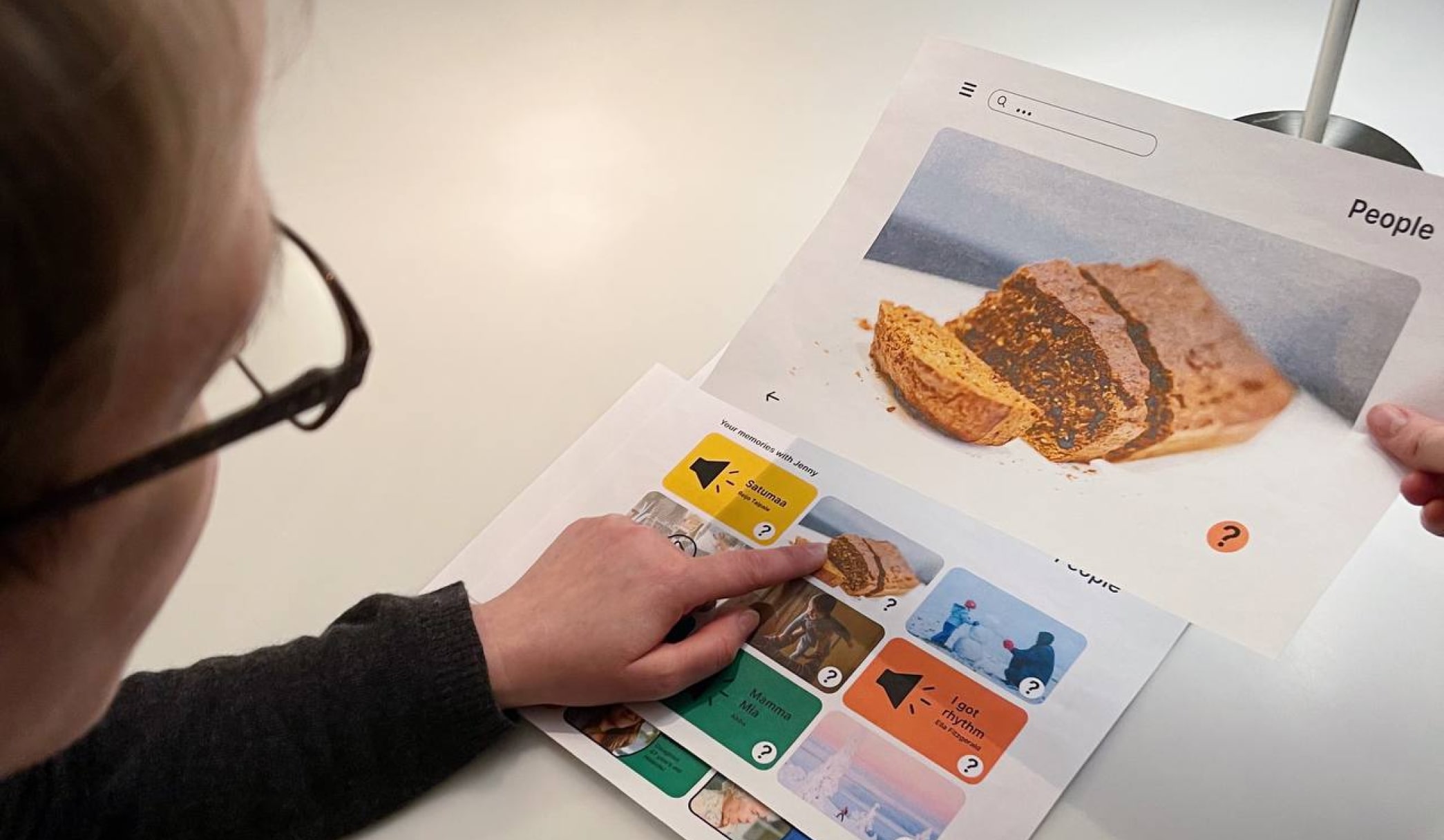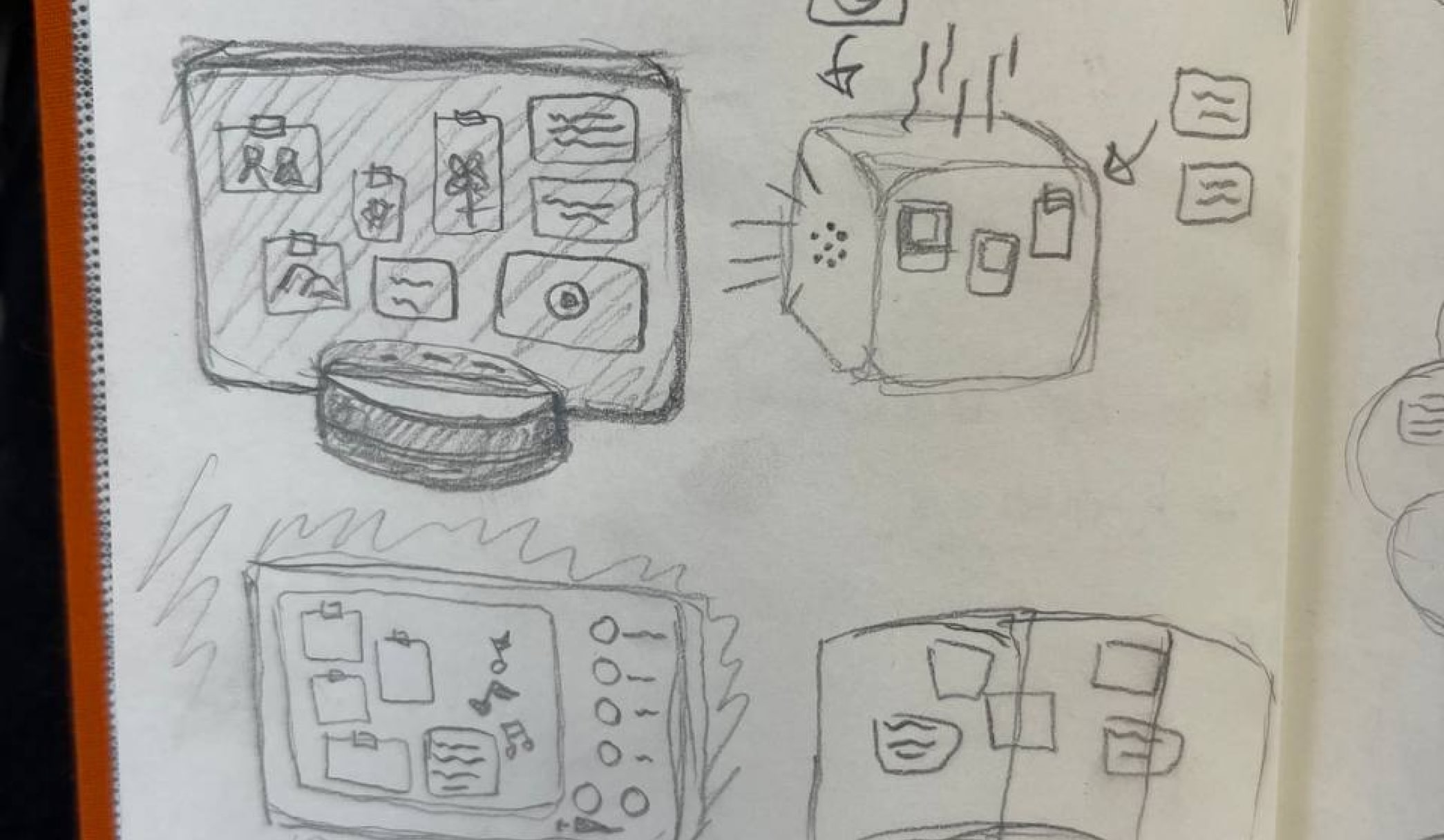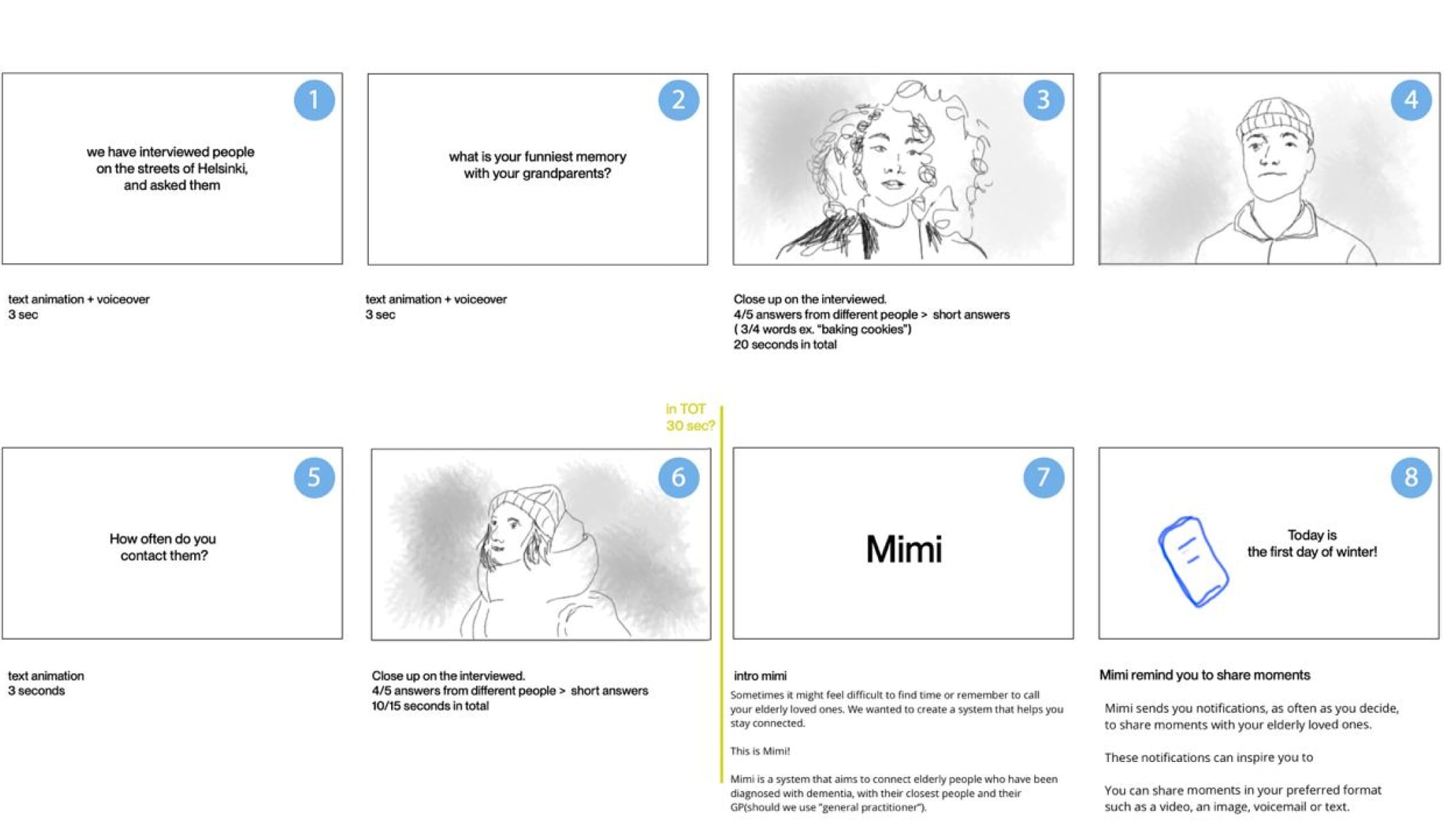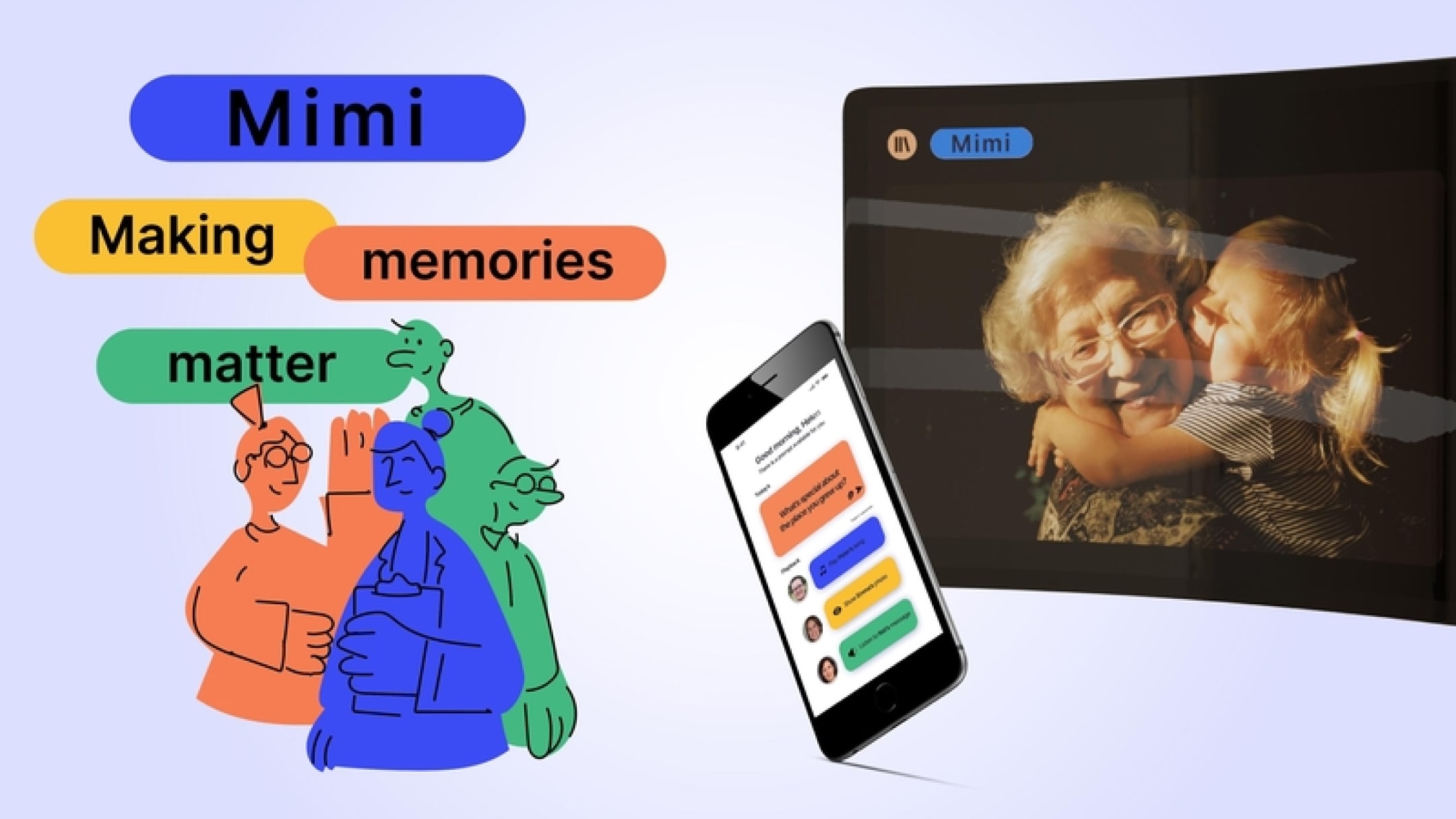Mimi: memories matter.
Mimi is a cutting-edge, dementia-oriented technology that merges a knowledge base, memory game, and social network into one comprehensive support system. Leveraging natural language processing and machine learning, Mimi facilitates stimulating interactions, assesses cognitive performance, and provides personalized reports, creating a compassionate, accessible 'safety net' for individuals with dementia, their families, and healthcare providers.
| ID: | #008.12 |
| Status: | Completed Concept |
| Client: | Aalto University, NordicCentre |
| Year: | 2021 |
| Collab: | Natalia Trzmielak & Laura Hietala |
| Discover: | link, link |

Challenge
How can we support dementia patients, their families, and healthcare providers in the rural Nordic region amidst a significant demographic shift?
Reimagening Nordic healthcare
In the next 20 years, it is forecasted that the population aged 65+ years and older is expected to increase by almost 30 percent across the Nordic region (Source). This massive demographic change will require a radical reimagination of the way in which the current high standard of healthcare is delivered. Within this environment, I developed Mimi with Natalia Trzmielak and Laura Hietala.



Approach
Reframing the challenge of rural dementia as an opportunity for family bonding combining scientific research, rapid prototyping and testing with target groups.
A Digital “Social Circle” of Care Around Dementia Patients
In our project, we outlined our guiding themes in the context of rural healthcare in the Nordics and honed in on dementia as a primary focus. As the researcher in our team, I developed a vision for enhancing pre-existing social connections (like families) around the dementia patient as a cognitive stimulus. The development process importantly saw the merging of two preliminary concepts—an add-on for existing messaging platforms and a platform for connecting dementia patients with caregivers—which integrated learnings from our research, idea generation, and brainstorming sessions, and feedback from our mentors.
During our process, we relied heavily on visual prototypes, sketches, and mock-ups to clarify and communicate our ideas. By using these with our target group, which we visited in a number of caretaker facilities and nursing homes, we validated our assumptions further.
During our process, we relied heavily on visual prototypes, sketches, and mock-ups to clarify and communicate our ideas. By using these with our target group, which we visited in a number of caretaker facilities and nursing homes, we validated our assumptions further.
Outcome & Impact
Mimi represents an innovative concept combining cognitive therapy, social networking, and remote healthcare, aimed at transforming dementia care.
So .. What is Mimi?
Basically, it’s a dementia-oriented technology that merges a knowledge base, memory game, and social network into one comprehensive support system. Leveraging natural language processing and machine learning, Mimi facilitates stimulating interactions, assesses cognitive performance, and provides personalized reports, creating a compassionate, accessible 'safety net' for individuals with dementia, their families, and healthcare providers.
And How Does it Work?
By frequently generating questions and memory prompts to respond to, our service connects persons with dementia with their family members and relatives that requires little time and effort. The responses to these prompts, be it speech, video, photos or any format, are collected into personalized libraries that can be revisited.
At the same time, through the use of natural language processing and machine learning, Mimi assesses on the basis of text and speech input, the cognitive performance of the persons with dementia.
These results are then collected and presented into personalized reports to the various users. In this way, Mimi harnesses the power of 'social interaction' as both cognitively stimulating and as a measurement of cognitive performance.
Response
While Mimi has not yet been tested for its direct effects on dementia care, the concept has garnered positive feedback from its preliminary evaluations. Initial reactions from older individuals in care facilities were encouraging, indicating a potential for significant impact in the realm of dementia care. Moreover, the project received positive reviews from course evaluators at Aalto University, validating the strength and creativity of the design concept. A notable achievement for Mimi was its showcase at the 'Design World Expo’ at the Finnish Pavilion during the World Expo in Dubai. This exposure on an international platform not only underlined the global relevance of the project but also opened avenues for further development and testing.
Reflection
Developing Mimi was a great opportunity with an interesting frame spanning different fields of industry.
My role in developing Mimi was quite crucial, blending biological insights with societal trends to create the project's foundation. This involved identifying key factors like the loneliness in Northern regions, the need for social networks in aging, and the potential of machine learning for cognitive assessment.
I led the conceptualization, video production, and storyboard design, while collaborating with Natalia on graphics and Laura on Finnish connections and user-testing. The project, culminating in full marks and enthusiastic reception, notably at the 'Design World Expo' in Dubai, affirmed the value of collaborative, empathetic design.
Although Mimi has yet to be fully realized or implemented, its journey was quite the experience. If anyone wants to help me put this into practice, hit me up!
I led the conceptualization, video production, and storyboard design, while collaborating with Natalia on graphics and Laura on Finnish connections and user-testing. The project, culminating in full marks and enthusiastic reception, notably at the 'Design World Expo' in Dubai, affirmed the value of collaborative, empathetic design.
Although Mimi has yet to be fully realized or implemented, its journey was quite the experience. If anyone wants to help me put this into practice, hit me up!
